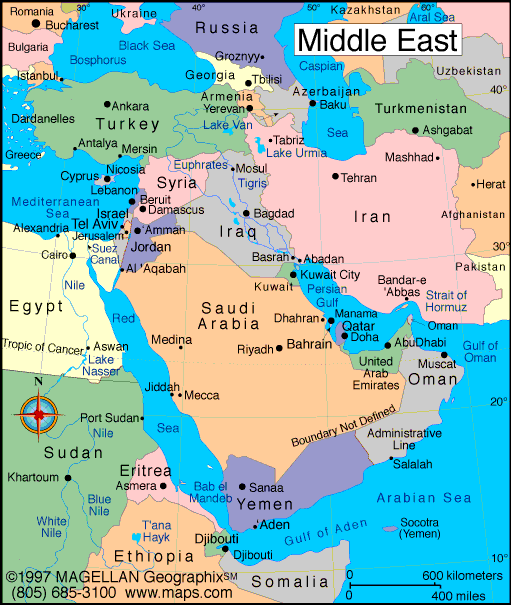The Middle East is invariably in flux, changing before our eyes. The following books may clarify issues, deepen understanding or simply outrage some readers.
In Shifting Sands: The United States in the Middle East (Columbia University Press), Joel Migdal, a professor of international studies at the University of Washington, argues that Washington’s policy in this constantly changing region after 1945 was stubbornly rigid and shaped by its experiences in coping with the Cold War in Europe.
Successive U.S. presidents, from Dwight Eisenhower to Gerald Ford, hewed to a “fixed strategy” as major upheavals upended the Middle East, he says.
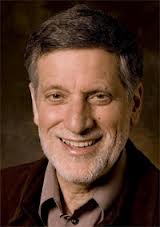
These political earthquakes are identified as the withdrawal of European colonial powers from the Middle East, the entry of the United States and the Soviet Union into the everyday affairs of the region, the emergence of Israel as a sovereign state and the Free Officers Revolution in Egypt. These events were followed by the Islamic revolution in Iran and Israel’s peace treaty with Egypt.
Proceeding from the assumption that the United States will remain deeply engaged in the Middle East, Migdal lays out a strategy of how Washington, in partnership with reliable local allies, can best attain its objectives in this turbulent area.
Migdal, a seasoned observer of Mideast politics, has written a comprehensive, thought-provoking and useful book.
***
Rashid Khalidi, in Brokers of Deceit: How the U.S. Has Undermined Peace in the Middle East (Beacon Press), claims that American diplomacy has made the attainment of peace between Israel and the Palestinians even more difficult.
Washington’s efforts to bring about peace have encompassed initiatives of the Carter, Reagan, Bush (George H. and George W.), Clinton and Obama administrations. “These initiatives were necessarily affected by the prior policies of the Johnson, Nixon and Ford administrations, which, like most of their predecessors, never attempted to deal in a fundamental manner with the Palestinian problem,” writes Khalidi, the Edward Said Professor of Modern Arab Studies at Columbia University.
In outlining his thesis, he examines three “moments” that clarified the nature of the U.S. approach to peacemaking — the Palestinian autonomy talks in 1982 which fizzled, the fruitless negotiations between Israel and the Palestinians in the wake of the 1991 Madrid conference, and Barack Obama’s attempts, all unsuccessful so far, to resolve the intractable Arab-Israeli dispute.

Khalidi’s conclusion is that the United States has basically underwritten and defended what he describes as the subjugation of the Palestinians. Without American backing, he says, “the entire Zionist project in Palestine could not have been so successful.”
Several of his arguments are quite persuasive, but bear in mind that Khalidi writes from a purely Palestinian perspective.
***
Originally published in 1986, Rashid Khalidi’s Under Siege: PLO Decisionmaking During the 1982 War (Columbia University Press) is back in print again with a new preface by the author.
The topic of this thoroughly researched book is ostensibly the Israeli invasion of Lebanon, which embroiled Israel in a costly war of attrition for 18 years and spawned the creation of Hezbollah. But the core of this book turns on the diplomacy which induced the Palestine Liberation Organization, headed by Yasser Arafat, to abandon its military base in Lebanon and its political headquarters in Beirut.
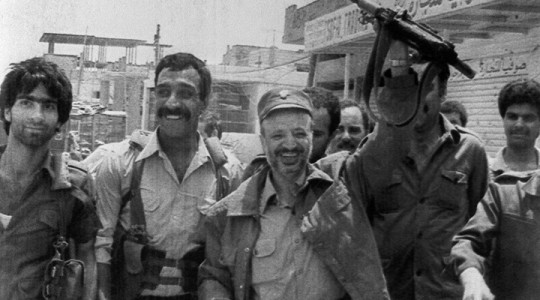
It’s a complicated story, replete with twists and turns, and Khalidi’s mastery over the material is impressive.
***
In The Rise and Fall of Al-Qaeda (Oxford University Press), Fawaz Gerges paints a bleak picture of its prospects. As he bluntly puts it in the introduction, “Al-Qaeda offers no economic blueprint, no political horizon and no vision for the future.”
Claiming that Al Qaeda’s core ideology is incompatible with the universal aspirations of Arabs, Gerges — a professor of Middle Eastern politics at the London School of Economics — says it does not speak for the global Muslim community or exercise any influence over Arab public opinion.
“Indiscriminate targeting of civilians has turned Muslim opinion against Al-Qaeda, its tactics and its ideology,” he observes. In short, Al-Qaeda has “lost the struggle for Muslim hearts and minds.”
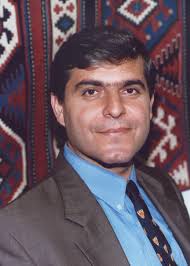
Gerges claims that Washington’s war on terror, conducted in the aftermath of Sept. 11, 2001, elevated Al-Qaeda’s status on the international stage. He also believes that U.S. drone strikes in Afghanistan and Pakistan have inflamed anti-American rage among Afghanis and Pakistanis.
The Rise and Fall of Al-Qaeda, an erudite work, was published before Islamic State, an Al-Qaeda offshoot, burst into prominence this year.
***
Internal rebellions challenging the legitimacy of authoritarian regimes broke out in the Arab world in 2010 and 2011. The consequences were pervasive. Popular revolutions unseated the presidents of Tunisia, Egypt and Yemen. A civil war resulted in the murder of Libya’s buffoonish strongman. Calls for peaceful change in Syria morphed into a fullblown uprising and civil war that has claimed the lives of almost 200,000 Syrians.
Jean-Pierre Filiu, in The Arab Revolution: Ten Lessons From the Democratic Uprising (Oxford University Press), sorts through the rubble of these revolts to reach a preliminary understanding about their meaning.
“The Arab revolution is an Arab renaissance,” writes Filiu, a French scholar. “It is literally striving to revive a social body paralyzed by the various autocrats, their predatory cliques and their unbridled security services.” Some pages later, he adds, “The Arab renaissance is just beginning.”
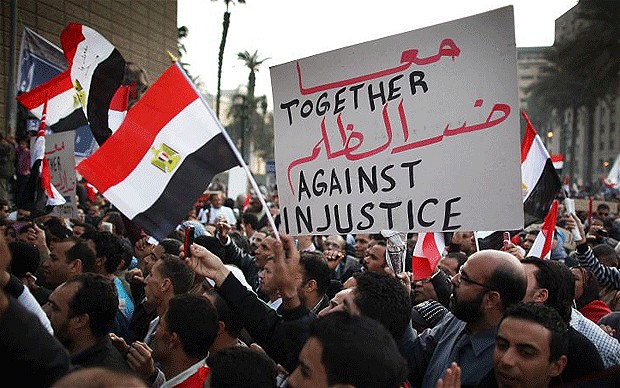
Judging by the counter-revolution in Egypt, the strife in Libya and the rivers of blood in Syria, Filiu’s appraisal is a tad premature. Nonetheless, The Arab Revolution is a workmanlike contribution to the historiography of the soured Arab Spring.
***
Shlomo Sand, an Israeli academic and post-Zionist who teaches history at Tel Aviv University, is a controversial figure. He established his credentials as an iconoclast with The Invention of the Jewish People and now, with the publication of The Invention of the Land of Israel (Verso), he goes one step forward by attempting to debunk Israeli national myths.
Sand’s latest book offers a profoundly contrarian and perhaps glib perspective of Zionist history and Jewish memory and identity. He’s on firmer ground when he deals with the simmering Palestinian issue.

In a reference to Israel’s occupation of the West Bank, he writes, “It appears to be paving a territorial path for the evolution of a binational state, as the increasing penetration of Israeli settlers into densely populated Palestinian areas seems to hinder every attempt at future political separation.”
And as long as the United States supports the status quo, he warns, the chances of achieving a durable peace will remain slim.

